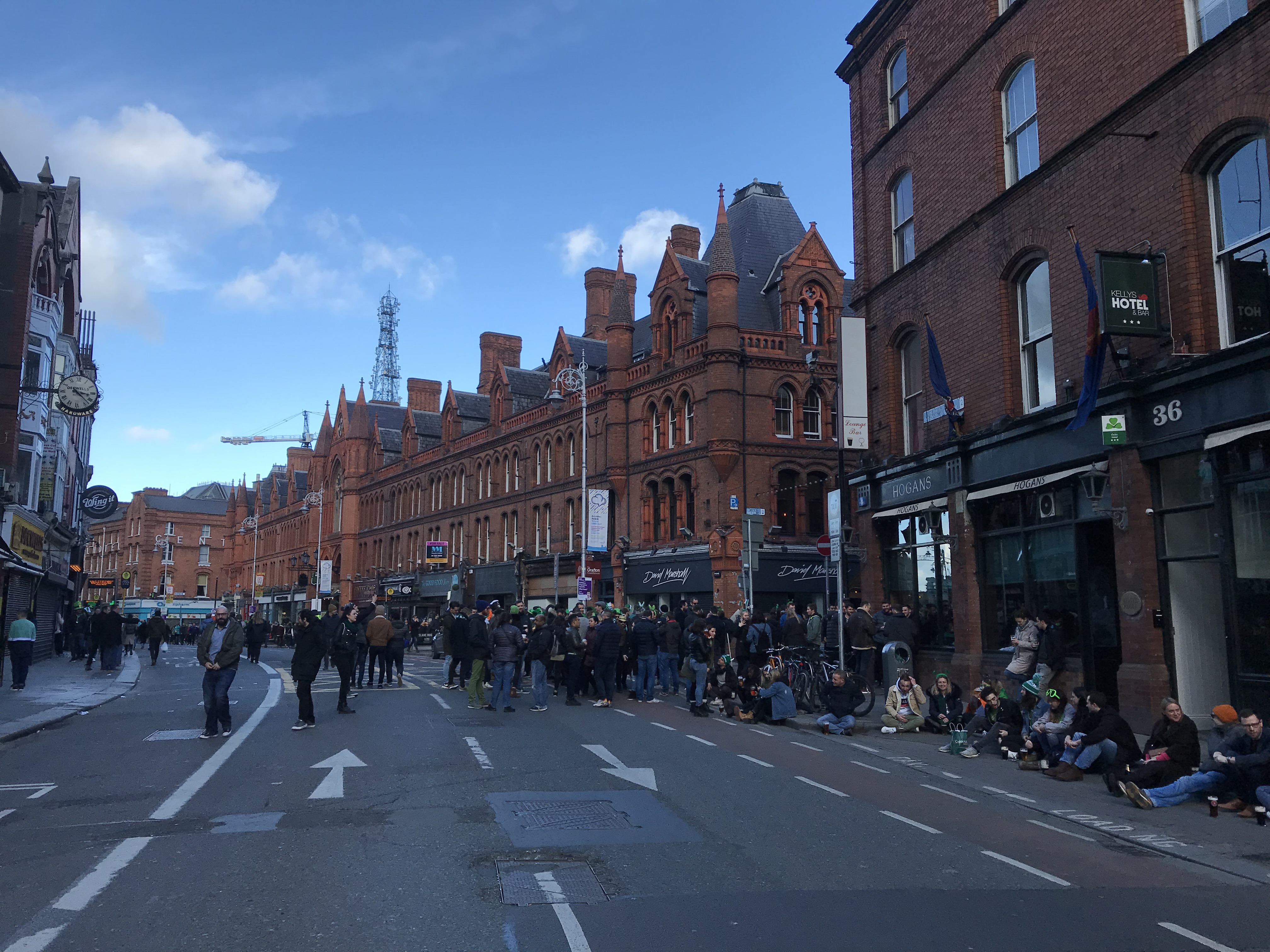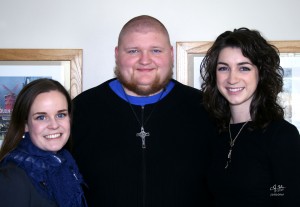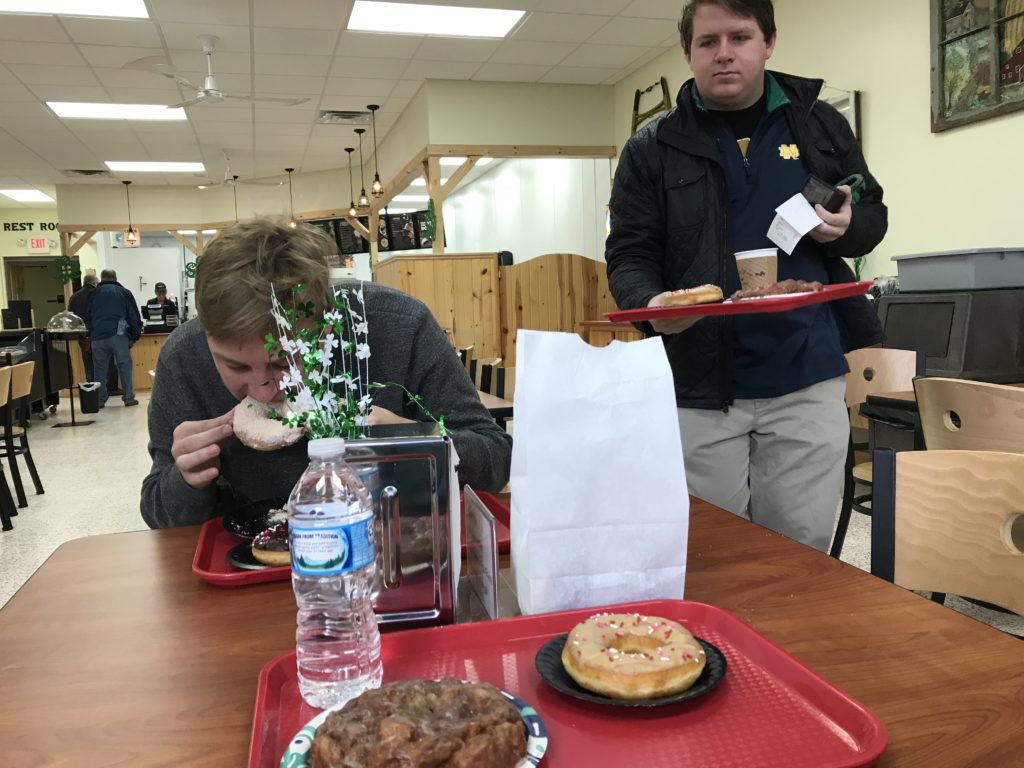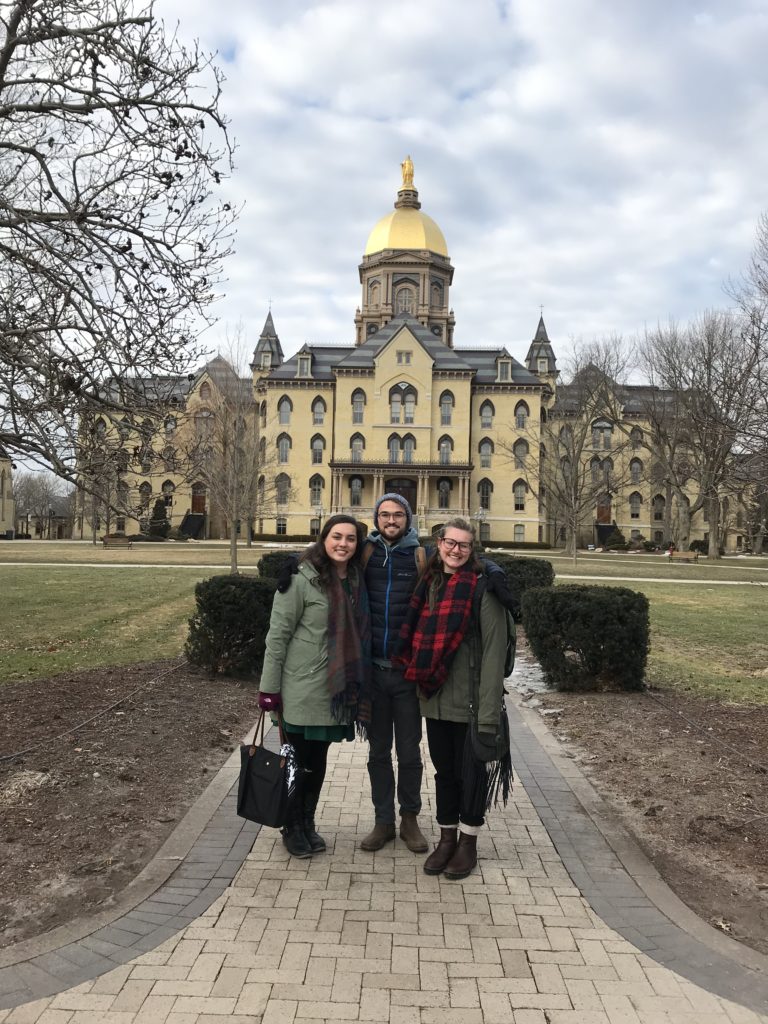
I’ve been finding it particularly hard to write anything this week. There seem to be too many ideas flying through my head: thoughts of the future, questions of how to discern God’s will, doubts about my capabilities. All of which make me feel like a bit of an outsider, or even an outlier: the only person failing to deal with or accept the uncertainties that pervade life as we know it. It is so tempting to assume that everyone else is getting along just fine, especially when you constantly see posts online celebrating the highlights of each person’s life and achievements.

Yet as I was giving myself a bit too much of a pity party last night, I stumbled upon reading the blog posts of our past House of Brigid members, and I soon discovered that I wasn’t as alone as I had once thought. Stretching back for years are people that had asked the exact same questions as me, expressed identical doubts, and even shared their frustrations with how life was offering them no clear answers. And for a moment I realized that I wasn’t alone, that in fact this stage in my life could be considered normal, and that gave me hope. I also began to realize just how much of an impact these past members had left on our community, visible in the growth our parish had undergone. I think it is important to realize that our actions do have impacts beyond what we may see. For example, the specific group of friends that welcomed me and my team members when we first arrived were in a way discovered and cultivated by those HoB members before us.


In lieu of feeling compelled to generate my own original piece of wisdom this time (a daunting task to do too often), I want to give credit to those who came before me, and the responses they made for their obstacles. One thought in particular stuck out to me from these past blogs. It was something written by Dublin fellow Ben Swanson, a man who I never got to meet, but whose place I took in the Dublin community. Ben wrote: “Let us settle on this then: the experience of human life is a terrible mystery to us all. We strive to pull meaning out of as much as we can so that we can get through the day without having to admit to ourselves and others that we’re not really sure about those things we are most sure about. We lose our minds worrying because none of it appears to be as meaningful as everyone says life is supposed to be. Well I say, let it be meaningless. Let it be mundane. Let time decide why things happen the way that they do. Not every moment is meant to be analyzed. Not every word of the preacher is for you. Maybe the words at mass aren’t sticking with you right now. It is possible that it isn’t because you aren’t trying hard enough. Maybe God doesn’t feel the need to say anything to you right now. Not every beam of sunlight is beautiful. Not every kind gesture is done out of love. Pray for a whole day and feel nothing. Good news! You’re human. But keep praying because it was never about you anyway. Keep listening to the priest and letting sunshine hit your face and appreciating kind gestures. Not because they will necessarily reveal your true self or make you feel closer to God but because the priest may have something interesting to say. Sunlight can warm your face. A kind gesture can warm your heart.”
This beautiful paragraph from Ben has sort of been my mantra these past few days. So often when I think about where I am currently at, and where I perceive my friends to be by comparison, I feel compelled to ‘figure things out’ once and for all and catch up on life. But this passage reminds me of the complexity of life, and more importantly the complexity of God’s providential care for humanity. When I feel tempted to view God’s ‘plan’ for my life as a singular, mysterious blueprint that I am supposed to uncover, I only find frustration. It either comes as confusion over knowing what the details of that plan are, or as bitterness toward the idea that everything is already decided for me, despite how I currently feel. But Ben makes a good point by recognizing that, “If you expect your daily life to give you meaning, then when all seems meaningless you will be left resenting life.”

All things considered, I likely won’t ever stop struggling with these questions about discernment, the future, and my capabilities, but what I can do is recognize that it is totally okay to feel that way and realize that things do get better, or at least change, even if they don’t completely go away. In the meantime I think what matters most is to appreciate and pay attention to the details of the day, like the feeling of walking to work, the smile of a laughing friend, the taste of Irish butter, and the warmth of the sun, as Ben suggests. These might seem trivial and short-term compared to the universal questions preying upon my thoughts and fears, but in a way they almost matter more as they can reveal the beauty of God’s creation in the smallest of moments. And it is through these little vignettes that we see something greater than I could ever find by obsessing over an inaccessible question, the peace of eternity. For though they do not tell us where to go next with our life, they do tell us where the world is pointing: toward the unchanging Goodness of the One who created them. And to steal some creativity from Ben one last time, “I don’t know what my current lack of spiritual clarity means, but I know that in the end it doesn’t really matter.”

